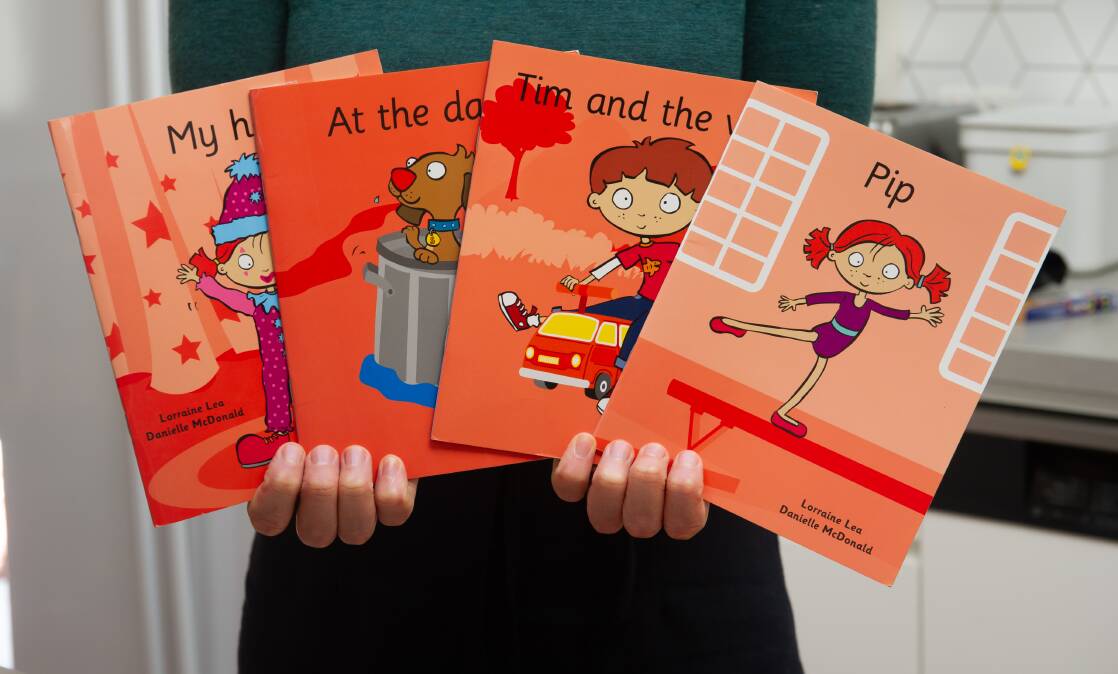The ACT Education Directorate does not know what type of books public schools have to teach young children to read as all schools make the switch to an updated curriculum.
The most recent version of the Australian curriculum mandates the use of decodable texts, which support students to learn letters and sounds systematically.
Version 9 of the curriculum has removed references to predictable texts and the three-cuing system, which can encourage children to guess words from context.
An ACT Education Directorate spokesman said all public schools would implement version 9 of the Australian curriculum from the beginning of 2024, however the directorate does not keep a central register of the books held across the 91 public schools.
"We have been working with our schools towards the delivery of version 9.0 for more than a year," the spokesman said.
"ACT public schools are well-informed on the educational resources required to teach version 9.0 and are funded to purchase them."
What are decodable readers?
Decodable readers systematically introduce words with letters and sounds (graphemes and phonemes) that students have already learned.
Predictable readers introduce many complex letter patterns at once which have not been explicitly taught, which means many children rely on the pictures and repetition in the text to figure out the words.

One major publisher, Decodable Readers Australia, has sold books to about 50 ACT public schools and about 30-40 non-government schools.
Another publisher, MultiLit, supplied decodable books to up to 25 ACT public schools.
Little Learners Love Literacy has sold decodable readers to 37 ACT schools since 2022, but it is unknown whether they were public or private schools.
Fitzroy Readers has sold decodables to three ACT school in that time: one Steiner school, one Anglican school and one Catholic school.
Canberra Goulburn Archdiocese Catholic schools use decodable readers in kindergarten and year one and for other students who need them.
The readers have been in use in most Catholic schools for two years as part of the changes brought in with the Catalyst program.
The Canberra Times understands some ACT public school teachers have printed out a free series of decodable books that were produced by SPELD SA with funding from the South Australian Government.
Some Parents and Citizens Associations have also requested their schools upgrade their books from predictable readers, also known as levelled readers, to decodable readers.
Building good habits
MultiLit director of strategy and senior research fellow Dr Jennifer Buckingham said decodable readers set up a reading habit in beginning readers of working out what the words are based on their phonics knowledge.
"Other sorts of books that beginning readers might be given for reading practice, aren't necessarily designed in that way," Dr Buckingham said.
"What used to be known as levelled readers really encourage children to use looking at pictures or trying to remember words on sight or all kinds of other clues to try and work out how to read the book, whereas decodable books are very much designed to set up that reading habit of decoding using their knowledge of the alphabetic principle and letter-sound combinations."
Dr Buckingham said decodable readers were becoming more popular in Australia.
"I think that the quality has improved, which has made them more popular and has made the reading experience both enjoyable and beneficial," she said.
University of Canberra doctoral lecturer in teacher education Julia Davies-Duff said when teaching kindergarten, she would send home a decodable book and an authentic text for someone to read to them to broaden the child's vocabulary.
"Decodable readers are a tool for that practise, and like any trade that is being crafted you need the right tools."
Most students would only need decodable books for a couple of years, she said.
"Get in early, get it right early, get out early."
NSW made a one-off $4.3 million purchase of decodable readers in 2021 for all kindergarten classes across the state to support a renewed focus on phonics.
The directorate spokesman said public schools had been supported to deliver the new curriculum through professional learning, in-school consultancy and targeted coaching.
"The ACT Government has invested significantly in literacy learning outcomes across ACT public schools," the spokesman said.







